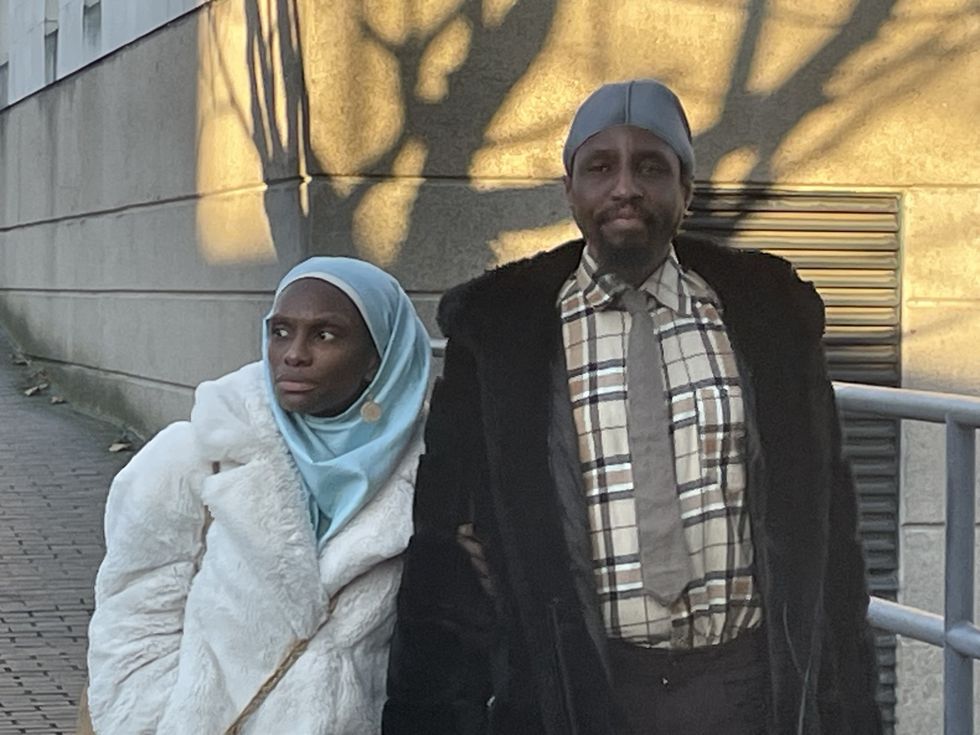



A three-year-old boy starved to death by his vegan parents may have died in part because officials feared being called racist, according to a damning report.
A new review suggested that navigating cultural beliefs may have been a factor in the death of Abiyah Yasharahyalah, who suffered from severe malnourishment, stunted growth, anaemia and rickets as a result of his vegan diet.
He died in 2020 from respiratory issues, that was worsened by his conditions.
In December last year, a judge found both of his parents, Tai and Naiyahmi Yasharahyalah, to have playing a part in Abiyah’s death by inflicting their fictional “slick law” on the innocent three-year-old.
The couple left their child’s body buried at their property in Handsworth, Birmingham before being evicted from the property in March 2022.
Tai, a medical genetics graduate, and Naiyahmi, a former shop worker, shunned mainstream society and “invented” a belief system, Coventry Crown Court heard. Tai created his own legal law called “slick law”.

Abiyah Yasharahyalah was starved by his parents
PA
The court also heard that the couple lived in a variety of places around the county of Somerset, including shipping contains and caravans.
The review, that investigated the families’ contact with Governmental services, saw a lack of questions about the lifestyle and culture of Abiyah’s parents were inflicting upon him, warning: “The safeguarding of children being impacted by harmful cultural practice is paramount.”
Published by Birmingham Safeguarding Children Partnership (BSCP), the review suggested that a large factor in the failure to safeguard Abiyah was that professionals were in a culture of fear at being branded a racist.
The report highlighted that navigating beliefs, culture, ethnicity and race “can be challenging” for professionals working in child safeguarding, but being “confident to ask questions about different cultures and belief systems without fear of being perceived as discriminatory” is a priority.
Kevin Ball, the author of the report said: “If any family engages in cultural practices which are harmful to children, this must not be overlooked, and the safeguarding of children being impacted by harmful cultural practice is paramount.”
The review, which was published yesterday, highlighted that Abiyah “was only ever seen by a small number of professionals during his lifetime”.

Tai and Naiyahmi Yasharahyalah were found to have inflicted their fictional 'slick law' on the innocent three-year-old
PA

Abiyah Yasharahyalah was buried in a garden
PA
Records show that Abiyah was visited by a health worker shortly after his birth in April 2016 and a month after for a check-up.
The report also demonstrated that there was contact with a social worker in London in 2018, as well as four visits to a children’s centre in Birmingham.
However, the report highlighted that “Records of these contacts and interactions are very limited, reinforcing that there was very little insight into [Abiyah’s] existence, health or welfare” and that Abiyah’s presence was “almost invisible on a review of the records.”
Abiyah’s mother’s desire to have a home birth had “no exploration or curiosity” from the Birmingham Community Health Care NHS Foundation Trust.
A safeguarding meeting in March 2020 noted that health check-ups with one- and two-year marks since his birth were not attended.
He also did not receive routine immunisations.
Covid lockdown delayed a follow-up inquiry into Abiyah’s health.
The review also concluded that the authorities interacting with family showed a “general lack of knowledge or assessment of the parents’ belief systems”, which lead to a “insufficient understanding about the impact on his care.”
Annie Hudson, chairman of the child safeguarding practice review panel, said the case raised “very serious questions” about safeguarding systems.
She added: “The local child safeguarding review published today highlights important learning, including about how Abiyah became invisible and lost from the view and oversight of professionals.
“It evidences strongly the paramount importance of understanding what life is like for children and not being distracted or diverted away by parental behaviour when considering children’s safety and welfare.”
Tai was sentenced to 24 years and six months and his wife was ordered to serve 19 years and six months in prison after being found guilty of perverting the course of justice, causing or allowing the death of a child, and child neglect.
